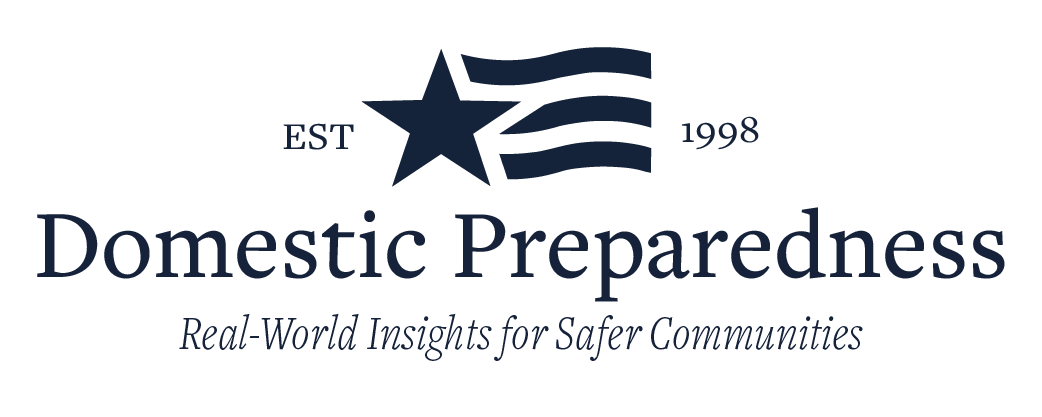CYBERSECURITY ARCHIVES
Training the Next Generation of Cyber Guardians
Steve Stein
November 2, 2022
Despite small local governments being overrun with malware, ransomware, and myriad other threats,
it is difficult to find experienced cybersecurity professionals. Meanwhile, students search for
nonexistent entry-level jobs. One Washington State-based nonprofit is seeking to close this
cybersecurity gap.
Looking Back to Look Ahead to Protect the Food Supply
Benjamin Lieb and Jason Bashura
October 12, 2022
History reveals patterns that preparedness professionals can use to better protect communities from agroterrorism and supply chain threats. One historical study has been updated to reflect cases of intentional food contamination events around the world. Learn more about this research and how to protect the food supply.
Chemical Sector Perspectives
Patrick Coyle
October 5, 2022
The Chemical Sector is one of 16 sectors identified as critical infrastructure under the Cybersecurity & Infrastructure Security Agency. Domestic Preparedness invited one subject matter expert to answer important questions about this sector and how the sector and its interdependencies can affect any community.
Hospital Response – A Personal Training Experience
Erin Valentine
August 17, 2022
Effective trainings are ones where the participants remember and later implement what they learned
into their daily operations. Not everyone knows how they would respond in a true emergency. However,
some trainings provide a more realistic glimpse into disaster scenarios than others. This first-hand
account describes what it was like for one participant
Societal Violence & Its Impact on Critical Infrastructure
Nathan DiPillo and Tim Scarrott
July 27, 2022
The “new normal” following the COVID-19 outbreak is still evolving. Although some people have welcomed the relief from many years of commuting and focused on personal growth and time with family, others have become disenfranchised, isolated, depressed, or lack purpose and empathy. As the United States reels from the recent
Making Communications a Predictable Lifeline Solution
Charles J. Guddemi
July 13, 2022
Community lifelines ensure that businesses and the government can continue functioning and society can thrive. However, a breakdown in daily operations is inevitable when one or more lifeline is lost. In communications, this means a disruption in technology that has become interwoven into societal norms – talking, texting, data transfer,
Overcoming Challenges – Do Not Skip Steps
Catherine L. Feinman
April 27, 2022
In some ways, communities are well prepared for emergencies. However, it is critical to
continuously assess systems, structures, models, and procedures to identify even small weaknesses and
gaps that can become significant impediments to effectively responding to threats, hazards, and risks.
The authors in this March edition of the Domestic Preparedness Journal identify
A Growing Threat to Healthcare and Other Facilities
Rodney Andreasen
April 20, 2022
Active shooter and other violent incidents occur all over the country – in urban and rural areas, in big cities and small towns, in large and small facilities. Many examples demonstrate the need to understand and plan for them and the significant consequences that could follow. This article empowers the
Securing & Protecting the Nation’s Cybersecurity Infrastructure
Raymond Walker and Chandler Lofland
April 13, 2022
The Colonial Pipeline cyberattack in May 2021 exposed the urgent need to safeguard and upgrade the critical infrastructure systems in the United States. Congress acknowledged that the government lacks the authority to require private companies – which own, operate, and protect 85% of the nation’s critical energy infrastructure assets –
PNT Signals as National Critical Infrastructure
Nathan DiPillo
March 16, 2022
Several national critical functions and all 16 critical infrastructure sectors rely either directly or indirectly on functional and consistent position, navigation, and timing (PNT) signals. As such, fragility of weak and easily imitated global positioning system (GPS) signals could lead to catastrophic impacts on dependent and interdependent critical infrastructure
The Evolving Status of Emergency Management Organizations
Kyle R. Overly
January 19, 2022
The proliferation of climate change, political strife, and general societal divisiveness is changing the nature of the work of emergency managers. The (ongoing) COVID-19 global pandemic, devastating hurricane and wildfire seasons, tenuous political situations, and broad unrest impact local communities in significant ways. Emergency managers are those who officials trust
Running Into Danger – Firsthand Accounts of 9/11
Catherine L. Feinman
December 15, 2021
This year marked the 20th anniversary of the 9/11 attacks. Many events were held to commemorate the
lives that were lost and to honor those who survived yet still ran into the danger zones to save lives
in New York, Pennsylvania, and Washington, DC. However, one special event hosted in Washington, DC
Follow Us
Get Instant Access
Subscribe today to Domestic Preparedness and get real-world insights for safer communities.


